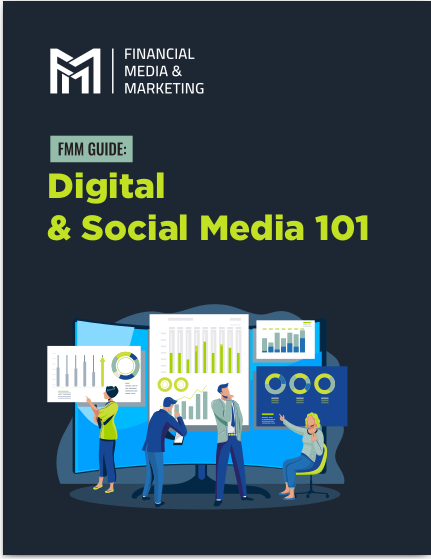Key Takeaways:
-
Building authentic relationships in networking takes time but yields lasting, meaningful results that can significantly impact your financial advisory business.
-
Focus on connecting genuinely by listening, offering value, and following up consistently to nurture and maintain professional relationships.
Why Authentic Networking Matters for Financial Advisors
Networking isn’t just about collecting business cards or adding connections on LinkedIn. For financial advisors, it’s about fostering relationships that lead to trust, referrals, and long-term clients. Authentic networking allows you to build a reputation as someone who genuinely cares about helping others—a critical trait in an industry built on trust.
When you approach networking authentically, you’re not just selling your services; you’re creating a foundation for meaningful, mutually beneficial connections. These connections can open doors to opportunities you may not have anticipated, from strategic partnerships to referrals that align with your niche.
Start With Clear Intentions
Before attending any networking event or reaching out to a new connection, ask yourself: What do I hope to achieve? Having clear intentions will guide your conversations and ensure your interactions are meaningful.
-
Define your goals: Are you looking for potential clients, industry partnerships, or mentorship opportunities? Knowing this will shape your strategy.
-
Identify your niche: Focus on connecting with individuals or groups that align with your expertise. For example, if you specialize in retirement planning, seek connections in industries with a high demand for this service.
By clarifying your intentions, you’ll avoid superficial interactions and instead focus on building relationships that align with your objectives.
Master the Art of Listening
The most effective networkers are exceptional listeners. When you engage with someone, give them your full attention. Active listening not only demonstrates respect but also helps you gather valuable insights about their needs, challenges, and goals.
-
Ask open-ended questions: Instead of asking, “What do you do?” try, “What inspired you to pursue your career?” or “What’s the biggest challenge you’re currently facing?”
-
Show genuine curiosity: Reflect on their answers and ask follow-up questions to delve deeper into their experiences.
By prioritizing listening over speaking, you’ll position yourself as someone who values others’ perspectives—a trait that builds trust and rapport.
Add Value Without Expecting Immediate Returns
Networking isn’t about instant gratification. It’s about giving without expecting anything in return. When you offer value to your connections, they’re more likely to remember and appreciate you in the long run.
-
Share resources: If you come across an article, tool, or event that aligns with their interests, send it their way.
-
Make introductions: Connect them with people in your network who can help them achieve their goals.
-
Offer your expertise: Share insights or advice that could help them solve a problem they’re facing.
This approach strengthens your relationships and establishes you as a trusted advisor and resource.
Choose Quality Over Quantity
While it’s tempting to connect with as many people as possible, meaningful networking prioritizes depth over breadth. Focus on cultivating a smaller circle of high-quality relationships rather than spreading yourself thin.
-
Follow up with intention: After meeting someone, follow up with a personalized message or email that references your conversation.
-
Schedule one-on-ones: Take the time to meet individually with key connections to learn more about their needs and goals.
Building deeper relationships with fewer people often leads to stronger, more impactful connections.
Make Networking a Consistent Practice
Consistency is key to successful networking. Instead of viewing it as a one-time activity, integrate it into your routine. Regular touchpoints with your network help maintain relationships and keep you top of mind.
-
Set weekly goals: Dedicate time each week to attend events, engage on social media, or reach out to new and existing connections.
-
Leverage technology: Use CRM tools to organize your contacts and set reminders for follow-ups.
-
Stay visible: Share insights and updates on platforms like LinkedIn to showcase your expertise and remain active in your network’s awareness.
Leverage Social Media Wisely
Social media platforms like LinkedIn, Twitter, and Instagram offer powerful tools for networking, but authenticity is crucial. Use these platforms to showcase your expertise while engaging genuinely with your audience.
-
Create meaningful content: Share posts or articles that provide value to your target audience, such as financial tips or industry updates.
-
Engage thoughtfully: Comment on posts, join discussions, and participate in relevant groups to demonstrate your interest in others’ perspectives.
-
Personalize your outreach: When connecting with someone new, send a personalized message explaining why you’re interested in connecting.
Social media can help you expand your network and strengthen existing relationships when used with a genuine approach.
Overcome Networking Anxiety
Networking can feel intimidating, especially if you’re naturally introverted or new to the field. However, by shifting your mindset and preparing in advance, you can approach networking with confidence.
-
Reframe your perspective: Instead of viewing networking as self-promotion, think of it as an opportunity to learn and connect.
-
Prepare an elevator pitch: Have a concise, engaging introduction ready that highlights who you are and what you do.
-
Practice active listening: Focus on understanding the other person rather than worrying about what you’ll say next.
The more you practice, the more comfortable and confident you’ll become.
Foster Long-Term Relationships
Networking doesn’t end after the first interaction. To create meaningful outcomes, you need to nurture your relationships over time.
-
Follow up regularly: Stay in touch with your connections through periodic emails, calls, or meetings.
-
Celebrate their successes: Congratulate them on milestones or achievements to show you care.
-
Offer continued value: Share relevant resources, insights, or opportunities whenever possible.
Long-term relationships often lead to the most meaningful opportunities, whether it’s referrals, collaborations, or lifelong friendships.
Measure Your Networking Success
To ensure your efforts are paying off, take time to evaluate your networking activities. Reflect on what’s working and where you can improve.
-
Track your outcomes: Keep a record of referrals, partnerships, or opportunities that stemmed from your networking efforts.
-
Solicit feedback: Ask trusted connections for their thoughts on your approach to identify areas for growth.
-
Adjust your strategy: Based on your results and feedback, refine your networking tactics to maximize impact.
By regularly assessing your efforts, you’ll continue to grow as a networker and build stronger, more meaningful connections.
Building Connections That Count
Authentic networking is more than just a business skill; it’s a mindset. By focusing on genuine connections, active listening, and providing value, you can create a network that leads to meaningful outcomes for your financial advisory career.
Take the time to nurture your relationships, be consistent in your efforts, and always prioritize quality over quantity. With these strategies, you’ll not only grow your network but also your reputation as a trustworthy, impactful financial advisor.










